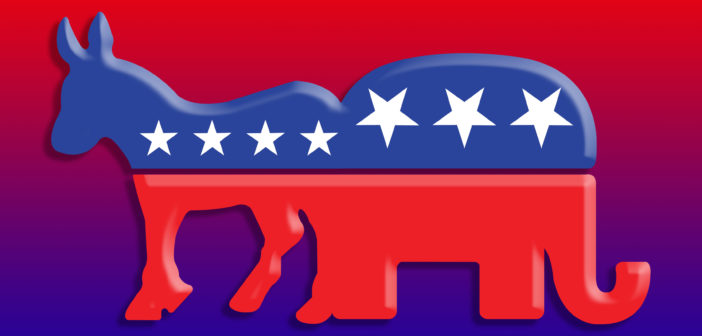Our bipartisan political system strongly encourages establishment politics, which truly set the stage for this unique and amusing election season. It is the root of the identifying characteristics of both of our parties.
It is interesting how our two main front runners of these parties – Donald Trump and Former Secretary of State Hillary Clinton – are on opposite ends of the spectrum not only in terms of their beliefs, but also in terms of how their respective parties view them. This particular race has defied our expectations of establishment politics.
Apart from Trump and Clinton, other candidates also differ in their party favor-ability. For example, Gov. John Kasich and Sen. Marco Rubio are exactly what the GOP views as their desired representative figures. They stick to the status quo, and promote the social benefits they reap from doing so and deny the existence of the detrimental effects caused by political media clashing.
Other candidates such as Gov. Chris Christie and former Gov. Jeb Bush were considered too moderate which is why they did not last in the race for too long. Although Sen. Rubio has now dropped out of the race, in any other election cycle he would have lasted. Any other election cycle minus Trump, that is. This is why Trump’s presence is so curious; he is completely anti-establishment, therefore not favored by the Republican Party. Yet he is still in the presidential race, leaving other Grand Old Party favorites in the dust.
While the GOP front runner is an anti-establishment candidate, the Democratic Party gladly embraces Clinton as its golden child. She is their establishment candidate. The Democratic National Committee is more supportive of her candidacy, which is seen especially through their fundraising efforts.
Sen. Bernie Sanders is an interesting political rival for Clinton since he, like Trump, holds beliefs that do not coincide with his party’s typical platform. Trump’s harsh claims against Mexicans crossing the border and Muslims emigrating from the Middle East makes his rhetoric incomparable to that of Sen. Sanders’. However, their places in their respective party’s eyes are not too different.
Dr. Alyx Mark, assistant professor of political science at North Central College, gave insight into Sen. Sander’s position in the eyes of the Democratic Establishment.
“I wouldn’t say that the DNC fears Sanders necessarily, but instead that institutions have been set up to deliver candidates that might be conceived of as more favorable to the DNC,” Mark says. However, this is a unique race, and Dr. Mark reminds us that Sen. Sanders has won seven of the last eight primary contests, so “super delegates” from earlier races “might change their minds closer to the convention as well.”
When we look observe the role of establishment politics in this particular election season, the big question is this: How has Trump managed as an anti-establishment candidate? Dr. Mark believes that there are many possible reasons:
“Many political scientists agree that he is tapping into a base of supporters that have not typically been mobilized by other Republican candidates or other candidates in general,” said Dr. Mark.
“Many scholars are trying to figure out why exactly this is happening — some say it is his ethnocentric appeals and some say it is because he appeals to an authoritarian sentiment,” Dr. Mark said.
This election season is packed with events and results that stun even political scientists. The truth is, we expect what we want to, but with curious characters like Trump being thrown into the regularity of Clinton’s world, politics will be observed very differently.

